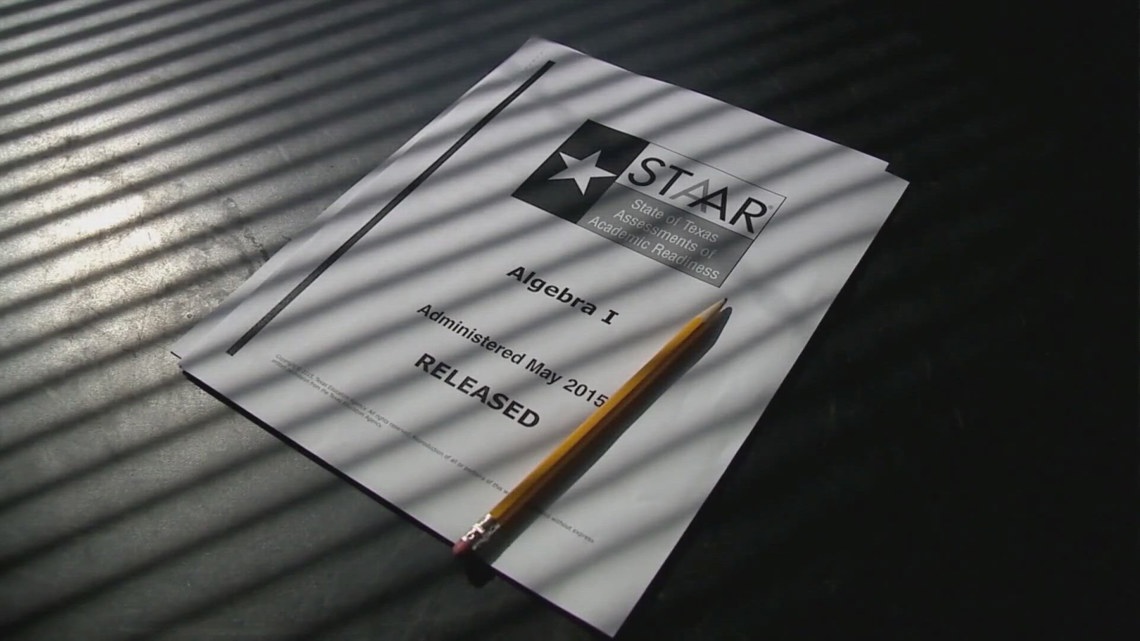
Representative Brad Buckley, who serves as the chair of the committee on public education, wants to overhaul the test by the 2027 school year.
TEXAS, USA — Texas lawmakers are making another push to eliminate the STAAR test, proposing a replacement system that would fundamentally change how Texas measures student performance.
House Bill 8, filed by District 54 Representative Brad Buckley, aims to replace the State of Texas Assessments of Academic Readiness (STAAR) with an “instructionally supportive assessment program” by the 2027 school year.
Key Changes Proposed
The legislation would shift from the current single, high-stakes test at the end of each school year to a three-part system with assessments at the beginning, middle, and end of the year. The bill also proposes:
- Shorter individual testing periods
- Faster result delivery
- Educator involvement in test review and development
“I do believe the one test one day… you put all your eggs in one basket creates a lot of the anxiety because of the accountability associated with that and that’s what we’re trying to get away from,” Buckley said during today’s committee hearing on the bill.
RELATED: Central Texas lawmaker still pushing for STAAR Test reform amid positive results and failed bill
Support from Educators and Parents
Casey Adams, Woodson ISD superintendent, testified in favor of the bill, citing trust issues with the current system.
“That’s probably one of the biggest concerns that we have at school districts – if there’s problems we want to have avenues to address those,” Adams said.
Adams believes the shift from what he called one “summative assessment” to a “formative assessment” would better serve students.
“We’re moving away from the summative assessment… to a formative approach, which means we’re going to get feedback quick and we’re going to adjust instruction throughout the year,” he explained.
The proposal has found support among parents who say STAAR testing creates harmful anxiety for their children.
Lillie McGinley, mother of a Temple ISD middle schooler, said the pressure became so intense she opted her daughter out of the test entirely.
“Through the whole year they kept pushing on her like, hey, you need to do this or you’re going to fail the STAAR… That’s all we ever heard about was the STAAR test,” McGinley said.
Belton ISD parent Katrina Foster, whose oldest son had what she described as a “traumatic” first STAAR experience, echoed similar concerns.
“He panicked, thought he was going to get held back, and I think the panic took over the entire test. He couldn’t concentrate on it at all because he was so scared that he was going to fail, even though he had great grades the rest of the year,” Foster said.
Critics Question Readiness
However, not all education stakeholders are convinced the bill is ready for implementation.
Monty Exter from the Association of Texas Professional Educators warned lawmakers they may face unexpected pushback from constituents who don’t view this as truly eliminating STAAR, or view this as removing any accountability systems.
“It’s really accountability, It’s more the accountability system than it is the testing or assessment system that people are concerned about, and we don’t see that this bill really substantively addresses that system,” he said.
He also criticized vague language in the legislation, questioning what it actually means when the bill states its “primary objective” is “to benefit the students of this state.”
“What on earth does it mean? It could mean anything that TEA wants it to mean,” Exter said.
Timeline and Next Steps
Representative Buckley acknowledged the complexity of the proposed changes and emphasized the need to implement them carefully.
“One of the things that we wanted to be real cautious with as we change is to make sure we get things right,” Buckley said.
The bill would maintain the current STAAR system through the 2026-2027 school year, with the new assessment program launching in 2027-2028.
The legislation still faces hurdles in both the House and Senate before any changes could take effect.
For parents like McGinley and Foster, any change would be welcome if it reduces the stress and anxiety they say current testing creates for their children.
“I feel it would get rid of a lot of the testing anxiety, a lot of the testing issues that we see with our children,” McGinley said. “I work in childcare, so I have a lot of kids who have so much anxiety, so much fear over this test.”
